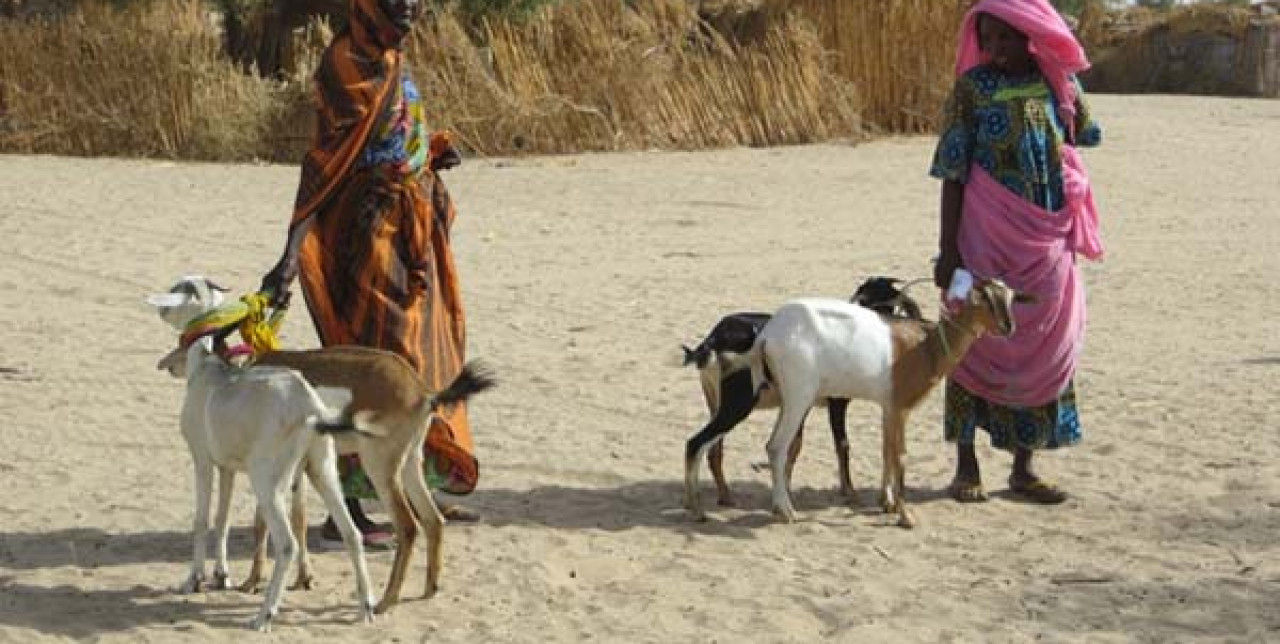09-11-2017 | di COOPI
Small ruminant fairs in Chad
Since March 2017, COOPI has been running an integrated emergency plan to improve the food security of vulnerable people in the region of Lake Chad. The project particularly addresses women: mainly local women, elderly women without a source of income or unmarried young women with children.
An essential part of the project aims to relaunch livestock rearing – a traditional industry in Chad’s economy – by helping women acquire small ruminants from fairs organised by COOPI in partnership with other local players.
To this end, approximately 390 women have been identified and trained to improve their farming techniques, which include caring for livestock and preventing the onset of infectious diseases.
COOPI identified suppliers of small ruminants and, together with the Chadian government’s farming delegation, ensured the health of the animals with a vaccination programme and parasite treatment. During the fairs, which took place in the cantons of Ngarangou, Nguelia and Bol, the women were given the opportunity to choose their own goats. Thanks to the support of AICS (the Italian Agency for Development Cooperation), each woman was able to buy three animals, along with two sacks of food supplements: a sack of natron and a sack of cotton production by-products.
The project’s director, Fabio Castronovo, explained: ‘The fairs were organised in the best possible way. Our staff adopted all the measures necessary to help the women get the food supplements to their villages, as they did not have their own means of transport.’
In the months to come, COOPI will continue monitoring the project and, with the approval of its financial backer, will organise systematic vaccination campaigns. The women and the village chiefs have welcomed COOPI’s aid, proving that the project has met the real needs of the territory up to now. To date, all COOPI projects have aimed to strengthen goat farming in the area concerned, particularly providing training on livestock-rearing techniques. The families of these women and the communities where they live will also indirectly benefit from COOPI’s work in terms of food and nutrition security, particularly as skills are passed on.




 Chad
Chad